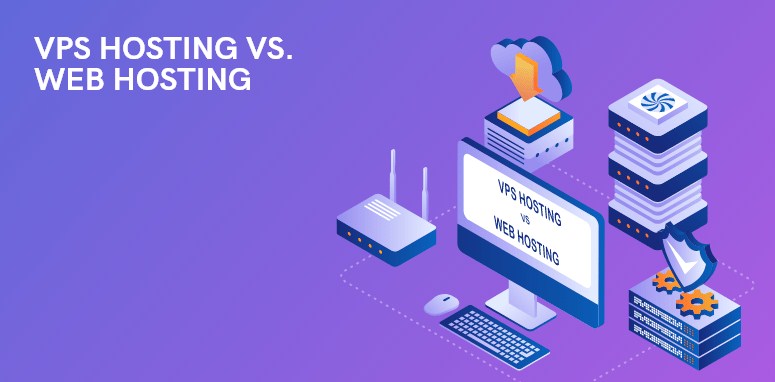How to start a vps hosting company – Starting a VPS (Virtual Private Server) hosting company in 2024 can be an incredibly lucrative venture for entrepreneurs looking to tap into the growing demand for virtualized web hosting. VPS hosting provides businesses with a flexible, scalable, and affordable solution compared to dedicated servers while still offering more control than shared hosting. In this guide, we will walk you through the steps to start a VPS hosting company, the benefits of VPS hosting, and the best products to help you along the way.

What is VPS Hosting?
A Virtual Private Server (VPS) is a virtual machine (VM) that runs an operating system and is hosted on a physical server. VPS hosting divides a physical server into multiple virtual environments, where each environment operates independently.
How VPS Hosting Works
When you use VPS hosting, you share a physical server with other users, but your VPS environment is isolated from others. You get dedicated resources like CPU, RAM, and storage, which ensures better performance than shared hosting. VPS hosting allows you to install custom software, configure firewalls, and have full control over your environment, just like a dedicated server, but at a lower cost.
Benefits of Starting a VPS Hosting Company
Starting a VPS hosting business has several key benefits that make it an appealing option for aspiring entrepreneurs. Let’s explore the major advantages:
1. High Profit Margins
VPS hosting is typically more profitable than shared hosting. Since you can provide clients with more resources and control over their environments, you can charge higher prices. Offering VPS plans can yield a higher return on investment compared to lower-tier hosting options.
2. Scalability and Flexibility
VPS hosting is incredibly scalable. As your client’s business grows, you can easily scale the VPS plan by upgrading the server resources (RAM, CPU, storage). This flexibility allows you to offer tailored hosting solutions for various types of clients, from small businesses to large enterprises.
3. Increased Demand for Virtualization
The demand for VPS hosting is continuously increasing as businesses shift toward cloud-based infrastructure. With remote work becoming more common and businesses requiring more robust online systems, VPS hosting provides the perfect middle ground between shared and dedicated hosting solutions.
Steps to Start a VPS Hosting Company

1. Choose Your VPS Hosting Model
The first step in starting a VPS hosting company is deciding on the business model. There are two main approaches:
- Reselling VPS Hosting: You buy VPS hosting from an established provider and resell it to clients. This model requires little to no infrastructure investment.
- Building Your Own VPS Infrastructure: If you have the resources, you can set up your own servers, manage your own data centers, and create custom VPS solutions.
Tip: For beginners, reselling VPS hosting is a more cost-effective approach. As you grow, you can expand into creating your own infrastructure.
2. Choose a Reliable VPS Hosting Provider
When starting a VPS hosting company, you need a reliable hosting provider to supply the VPS servers. This could be a reseller hosting program or a direct partnership with a large hosting provider. The best VPS hosting providers offer robust hardware, excellent customer support, and flexible plans.
3. Set Up Your Billing and Support System
Managing client billing and support is crucial for your hosting business. You’ll need to integrate a billing system such as WHMCS or Blesta, which helps automate the process of billing clients, handling renewals, and customer service inquiries.
4. Market Your VPS Hosting Services
Once your business is set up, it’s time to market your VPS hosting services. You can use online channels such as:
- SEO: Optimize your website for search engines.
- PPC Ads: Run Google Ads campaigns.
- Affiliate Marketing: Partner with other websites to promote your VPS hosting services.
Top 5 VPS Hosting Products for Your New Business
To kick-start your VPS hosting business, choosing the right products is essential. Here are five highly recommended VPS hosting providers that can help you get started.
1. InMotion Hosting
InMotion Hosting offers high-quality VPS hosting solutions, making it ideal for resellers and businesses just getting started. It has a user-friendly control panel and solid uptime.
- Features:
- SSD storage for fast speeds
- Free website migration
- Full root access
- 24/7 support
- Pros:
- Excellent uptime (99.99%)
- Great customer service
- Easy to scale
- Cons:
- More expensive than shared hosting
- Limited data center locations
- Price: Starts at $19.99/month
- Visit InMotion Hosting
2. DigitalOcean
DigitalOcean is an excellent option for developers or those looking for more control over their VPS. It offers a highly customizable VPS hosting solution with a simple interface.
- Features:
- SSD-based VPS
- Highly customizable server resources
- Powerful API
- Global data centers
- Pros:
- Developer-friendly tools
- Affordable
- Great scalability
- Cons:
- Lacks some managed services
- Not ideal for beginners
- Price: Starts at $5/month
- Visit DigitalOcean
3. Vultr
Vultr is another strong choice for starting a VPS hosting company. It offers flexible cloud computing solutions with high performance.
- Features:
- SSD VPS hosting
- Global data centers
- 1-click apps for quick setups
- Managed services available
- Pros:
- Great for high-performance needs
- Low cost for entry-level services
- Excellent for small businesses
- Cons:
- Requires technical knowledge
- Customer support can be slow
- Price: Starts at $2.50/month
- Visit Vultr
4. Hostwinds
Hostwinds is known for providing fast, reliable VPS hosting with a range of customizable options and excellent support.
- Features:
- SSD-based storage
- Fully managed VPS options
- 24/7 support
- Free website migration
- Pros:
- Highly affordable
- Excellent customer support
- Great for both beginners and experienced users
- Cons:
- Limited advanced features
- Shorter billing cycles for lower-tier plans
- Price: Starts at $4.50/month
- Visit Hostwinds
5. Bluehost
Bluehost is one of the most trusted names in web hosting, offering VPS solutions for those who need more power but still want great customer support.
- Features:
- SSD storage
- Free domain for the first year
- 24/7 support
- Easy-to-use control panel
- Pros:
- User-friendly interface
- Solid performance
- Great for beginners
- Cons:
- Expensive renewal rates
- Limited customization compared to other providers
- Price: Starts at $19.99/month
- Visit Bluehost
VPS Hosting Comparison Table
| Product | Use Case | Pros | Cons | Price | Features |
|---|---|---|---|---|---|
| InMotion | Reliable reselling | Excellent uptime, support | Expensive for small businesses | From $19.99 | SSD storage, full root access |
| DigitalOcean | Developer-focused VPS | Low cost, customizability | Not beginner-friendly | From $5 | SSD VPS, API, global data centers |
| Vultr | High-performance solutions | Affordable, scalable | Requires tech knowledge | From $2.50 | SSD storage, 1-click apps |
| Hostwinds | Managed VPS for all levels | Excellent support, affordable | Shorter billing cycles | From $4.50 | Fully managed, SSD storage |
| Bluehost | User-friendly VPS hosting | Great support, easy interface | Expensive renewals | From $19.99 | Free domain, SSD storage |
How to Buy and Where to Buy VPS Hosting Products
To buy VPS hosting solutions, you can visit the official websites of the products mentioned above. Here are the steps to get started:
- Visit the website: Click on the links provided.
- Choose a plan: Based on your needs, select a VPS plan that fits your budget and requirements.
- Sign up: Create an account and proceed with the checkout.
- Configure your VPS: Customize the server settings to match your business needs.
Frequently Asked Questions (FAQs)
1. What is the difference between VPS and shared hosting?
VPS hosting provides more resources, customization, and control compared to shared hosting, where resources are shared among multiple users.
2. How much does it cost to start a VPS hosting company?
The cost varies depending on your business model. Reselling VPS hosting is cheaper, while building your own infrastructure may cost thousands of dollars.
3. Is VPS hosting suitable for small businesses?
Yes! VPS hosting provides scalability and reliability for small businesses looking to grow without the need for dedicated servers.
4. Can I scale my VPS hosting plans as my business grows?
Absolutely! VPS hosting is highly scalable, allowing you to increase resources as your needs grow.
5. How long does it take to set up VPS hosting?
If you’re reselling, the setup can be done in a few hours. If you’re setting up your own VPS infrastructure, it could take a few days depending on the complexity.
Starting a VPS hosting company can be a rewarding venture if you choose the right approach and tools. Whether you’re reselling or building your own infrastructure, the benefits of VPS hosting, including scalability and control, make it an excellent choice for businesses and web developers.
Read More >>>
- Cheapest Windows Server Hosting: Top Providers, Benefits, and How to Choose the Right Plan
- Windows VPS Remote Desktop: Benefits, Top Products, and How to Buy in 2024